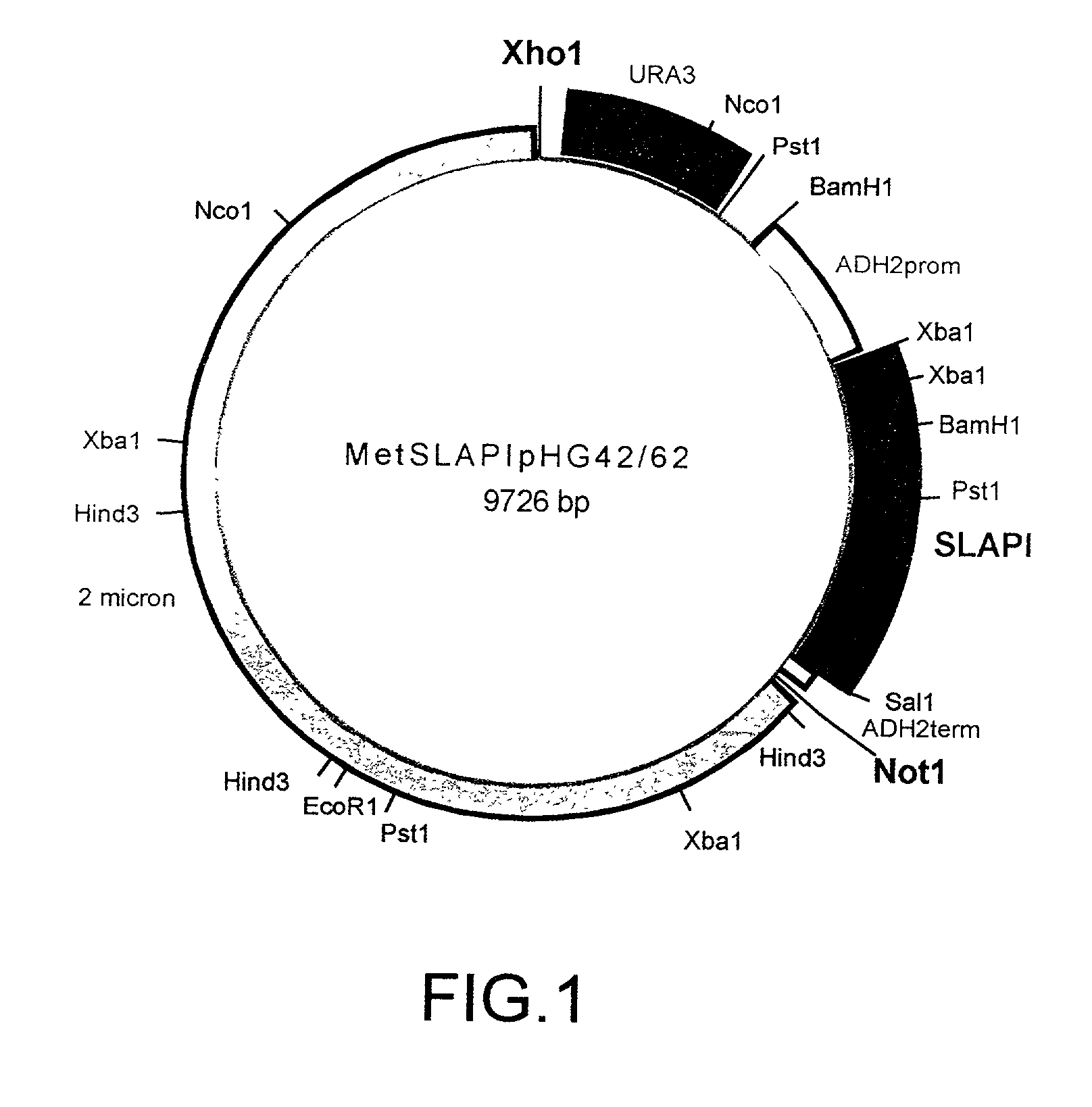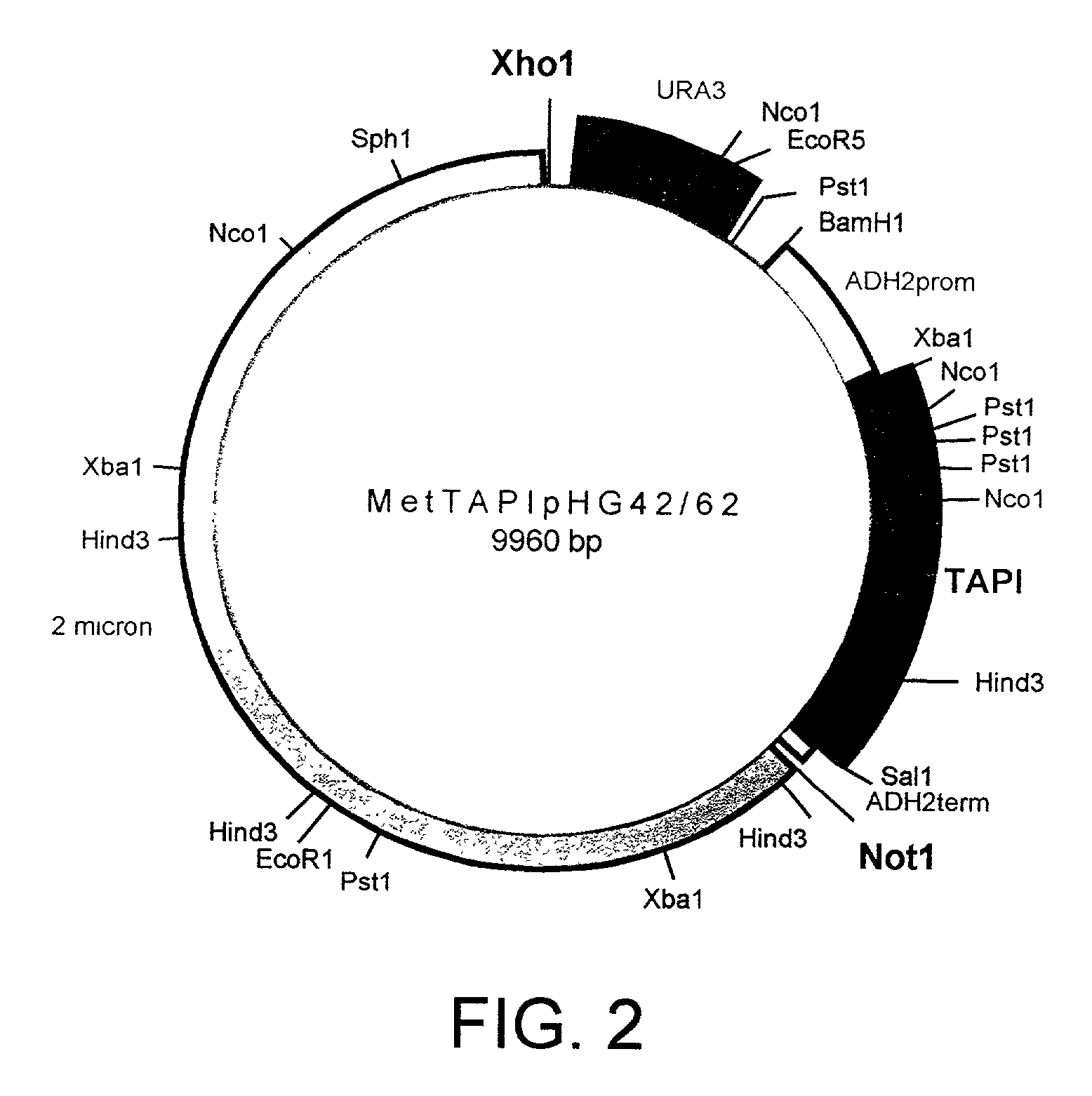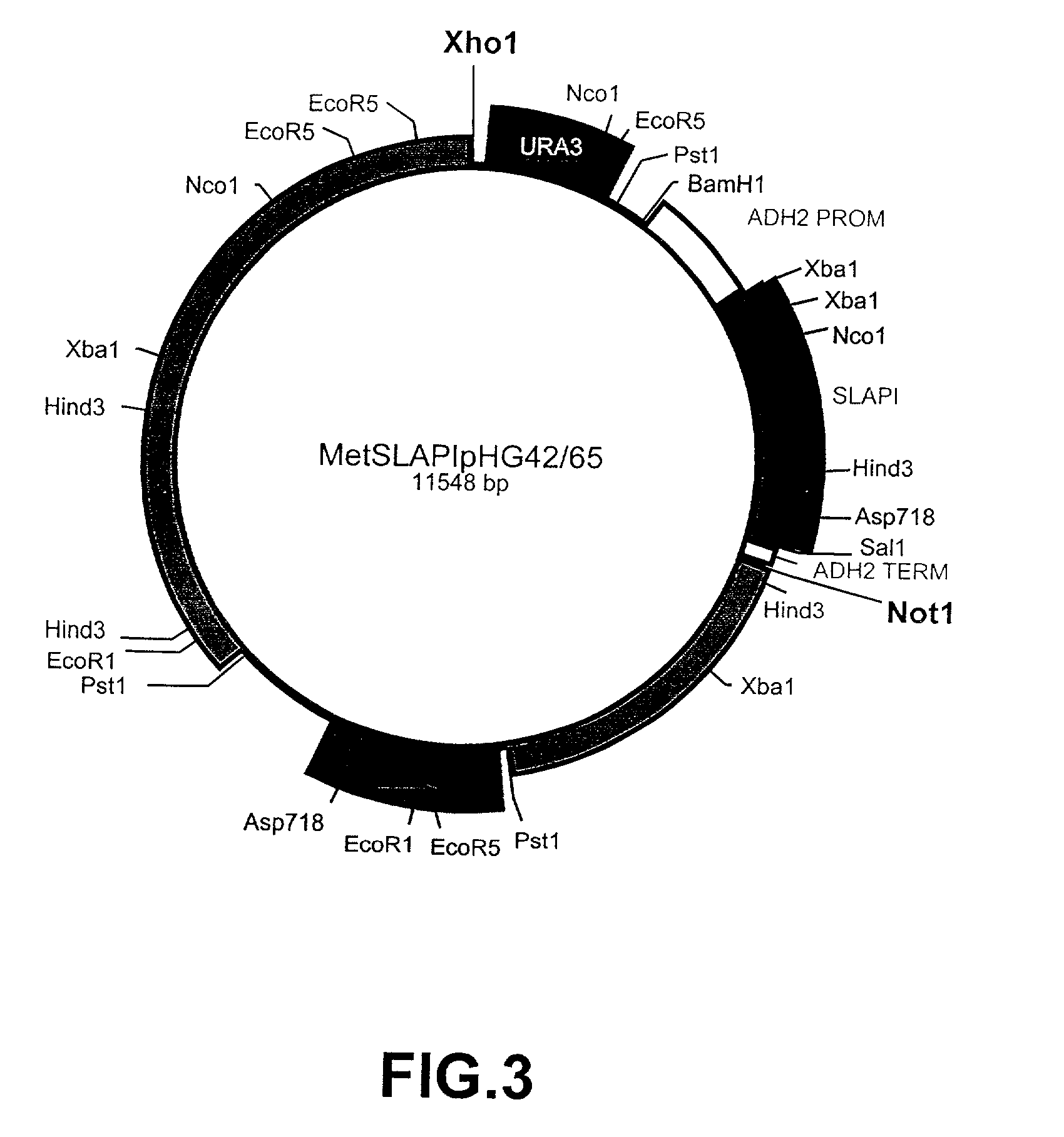Multifunctional protease inhibitors and their use in treatment of disease
a protease inhibitor and multi-functional technology, applied in the field of protease inhibitor fusion proteins, can solve the problems of presenting no completely satisfactory treatment, early onset of pulmonary emphysema in many individuals with aat-deficiency, and the large amount of lung damage associated with
- Summary
- Abstract
- Description
- Claims
- Application Information
AI Technical Summary
Benefits of technology
Problems solved by technology
Method used
Image
Examples
example 1
Construction of SLPI / AAT and TIMP-1 / AAT Fusion Proteins
[0146]A fusion protein comprising amino acids 1–107 of human SLPI fused to amino acids 1–394 of human AAT was constructed and referred to as SLAPI. The nucleotide sequence which was used in the construction of the SLAPI fusion protein is shown in SEQ ID NO: 7 (see Table 15), in which nucleotides 1–6 represent an XbaI restriction site, nucleotides 6–8 represent a ribosome binding site, nucleotides 9–11 represent an initiation codon, nucleotides 12–332 represent the SLPI coding sequence, nucleotides 333–335 represent a linking codon encoding a linking methionine residue, nucleotides 336–1517 represent the AAT coding sequence, nucleotides 1518–1520 represent a stop codon, and nucleotides 1520–1525 represent a SalI restriction site. The amino acid sequence of the SLAPI fusion protein is shown in SEQ ID NO: 8 (see Table 16), in which amino acid 1 represents an initiator methionine residue, amino acids 2–108 correspond to amino acids ...
example 2
Construction of N-TIMP / AAT Fusion Proteins (N-series)
[0157]The amino (NH2 or N) terminal 126 amino acids of mature TIMP-1 have been demonstrated to contain the proteolytic inhibition domain. This domain has 6 cysteines and 3 disulfide bridges required for proper folding and activity whereas the full length molecule contains 12 cysteines and 6 disulfide bridges. To generate an active molecule with proper disulfide linkages, the N-terminal domain of TIMP has been fused to AAT to generate N-TAPI. rN-TAPI (reverse-N-TAPI) was constructed as described in the next Example. These molecules have a methionine initiation codon at aa 1 followed by the first 126 aa of human TIMP-1, another methionine followed by the 394 aa of mature human AAT (N-TAPI); or the reverse for rN-TAPI.
N-TAPI
[0158]N-TAPI is a fusion comprising amino acids 1–126 of human TIMP-1 fused to amino acids 1–394 of human AAT. The nucleotide sequence which was used in the construction of the N-TAPI fusion protein is shown in SE...
example 3
Reverse Orientation Fusion Proteins
[0163]The r series of proteins, here rSLAPI, rTAPI, and rN-TAPI, are fusion proteins designed with AAT at the amino terminal end of the protein with either SLPI, TIMP, or N-TIMP-1 following at the carboxyl end of the protein, and a methionine inserted at the junction between the two proteins. Thus, following the initiation methionine at amino acid 1 there are the 394 amino acids of mature human AAT, another methionine and then 107 and 184 amino acids respectively for mature human SLPI and human TIMP-1, or amino acids 1–126 of N-TIMP-127.
Construction of rSLAPI
[0164]rSLAPI, a fusion of AATyc2 plus SLPI (aa 1–107), is the reverse of SLAPI. The coding regions are fused with a novel BspE1 site inserted by PCR into the first 2 aa of SLPI as follows. A 3 piece ligation is assembled in AATyc2pHG42#3 Hindlll / Sal1 vector with Hindlll / BspE1 AAT fragment and BspE1 / Sal1 SLPI fragment. The Not1 / Xho1 fragment is ligated in to the yeast vector pKC64. pHG 62 or pKC...
PUM
| Property | Measurement | Unit |
|---|---|---|
| Inhibition | aaaaa | aaaaa |
Abstract
Description
Claims
Application Information
 Login to View More
Login to View More - R&D
- Intellectual Property
- Life Sciences
- Materials
- Tech Scout
- Unparalleled Data Quality
- Higher Quality Content
- 60% Fewer Hallucinations
Browse by: Latest US Patents, China's latest patents, Technical Efficacy Thesaurus, Application Domain, Technology Topic, Popular Technical Reports.
© 2025 PatSnap. All rights reserved.Legal|Privacy policy|Modern Slavery Act Transparency Statement|Sitemap|About US| Contact US: help@patsnap.com



